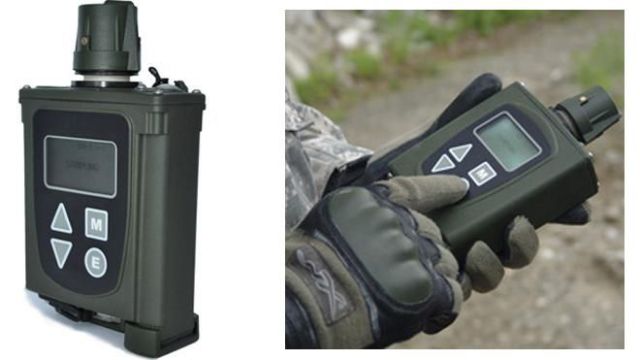|
|
|||
|
Defence & Security News - Smiths Detection
|
|||
|
|
|||
| Smiths Detection to provide US Army with 1,687 M4E1 Joint Chemical Agent Detectors | |||
|
Smiths Detection was awarded a $9,510,995 contract to exercise the option to purchase 1,687 M4E1 Joint Chemical Agent Detectors, six Platform Interface Kits and 116 Sieve Packs. The estimated completion date is Sept. 30, 2016. Work will be performed in Edgewood, Maryland.
|
|||
|
|
|||
 Smiths Detection M4E1 Joint Chemical Agent Detector Smiths Detection M4E1 Joint Chemical Agent Detector |
|||
|
|
|||
|
The Joint Chemical Agent Detector (JCAD) is a pocket-size, rugged, handheld detector s.that automatically detects, identifies, and alarms to chemical warfare agents and toxic industrial chemical vapor.
The system can be used on mobile platforms, at fixed sites, and on individuals designated to operate in a chemical threat area. The JCAD can operate in a general chemical warfare environment and can undergo conventional decontamination procedures by the soldier. The Enhanced JCAD (M4E1 JCAD) went into production in FY11. The M4E1 JCAD reduces operation and sustainment costs, has an improved user interface, and is net-ready. The JCAD replaces the Automatic Chemical Agent Detector and Alarm (ACADA or M22), M90, and M8A1 systems. The JCAD may replace the Chemical Agent Monitor (CAM) and Improved Chemical Agent Monitor (ICAM). The JCAD M4E1 features instant feedback of hazard (mask only or full Mission-Oriented Protective Posture), Real-time detection of nerve, blister, and blood agents, and can stores up to 72 hours of detection data. The M4E1 has been net-ready through implementation of the common chemical, biological, radiological, and nuclear standard interface. |
|||
|
|
Smiths Detection to provide US Army with 1,687 M4E1 Joint Chemical Agent Detectors
- Posted On














